In the face of the current cost of living crisis, many of us are looking for ways to save money, and one simple method that's regaining traction is growing our own vegetables. But is the effort worth it financially in the modern world?
The Cost-Benefit Analysis of Home Gardening:
In an era where every dollar counts, the idea of growing your own vegetables might seem like an attractive proposition. Not only does it offer a potential reduction in grocery bills, but it also provides a sense of self-sufficiency, and let's not forget the therapeutic benefits of gardening itself. However, the question remains: does the cost of growing your own vegetables outweigh the price of purchasing them from the supermarket?
The answer isn't as straightforward as you might think. It's true that the initial costs of setting up a vegetable garden can be high, especially if you're starting from scratch. Seeds, tools, and other gardening essentials can quickly add up. However, the key to making your vegetable garden a cost-effective venture lies in strategic planning and smart choices.
Storage and Preservation: Maximising Your Veggie Garden
Focus on vegetables that can be easily stored or preserved. Potatoes, onions, and winter squash, for example, can be stored for several months, providing a long-term return on your investment.
Starting Small: A Strategy for Novice Gardeners
Starting small is also a good strategy, especially for novice gardeners. It can be tempting to plant a wide variety of vegetables, but this can quickly become overwhelming. Instead, start with a few types of vegetables and gradually expand your garden as you gain more experience and confidence.
The Value of Home Gardening
With thoughtful planning and strategic decision-making, your garden can become a cost-effective supplement to your regular grocery shopping. The financial savings are just one aspect of the equation. The satisfaction derived from consuming food you've nurtured from seed to harvest, coupled with the sheer joy of engaging with nature in your own backyard, are rewards that are hard to quantify. So, is it worth it to grow your own veggies? Our perspective is a resounding yes.
The Best Vegetables to Grow: A Cost Comparison
But how do you decide which vegetables will give you the best bang for your buck and the highest yields? Stay tuned as we delve into this in the next section, providing you with a comprehensive guide to the most cost-effective and high-yielding vegetables to plant in your garden.
Lettuce
Lettuce, particularly varieties like iceberg, is a great choice for your garden. It's relatively easy to grow, and you can harvest the leaves as needed, reducing waste. The cost of a lettuce head at supermarkets is approximately $3.90, while the estimated cost of growing your own lettuce is around $30-45 for a continuous supply over several months, according to this recent Australian article. This means that after growing about 8 heads of lettuce, you start to see savings. A packet of lettuce seeds is typically less than $4, so you’ll definitely get your money’s worth.
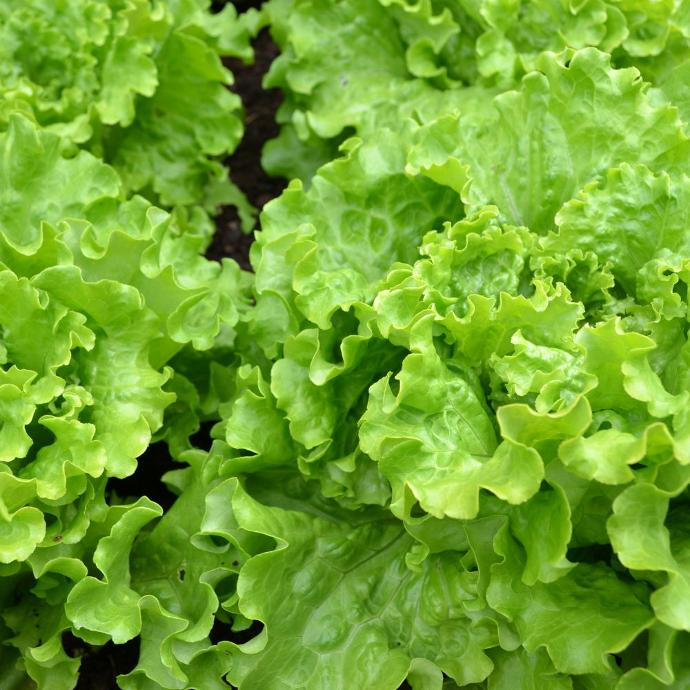
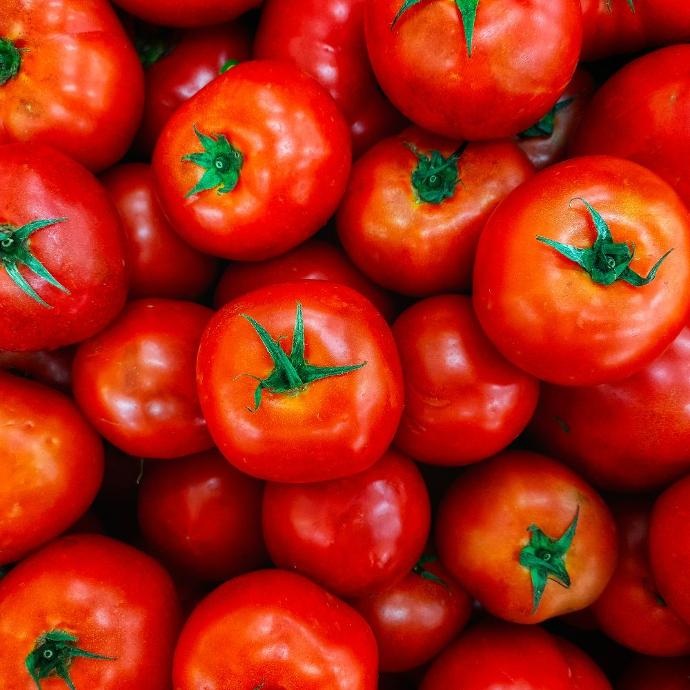
Tomatoes
Tomatoes are a versatile crop that can be used in a variety of dishes. The cost of field supermarkets is approximately $5.50 per kg. On the other hand, the cost of growing your own tomatoes can be as low as $1.60 per kg, according to a report. This means you could potentially save $3.90 per kg by growing your own tomatoes.
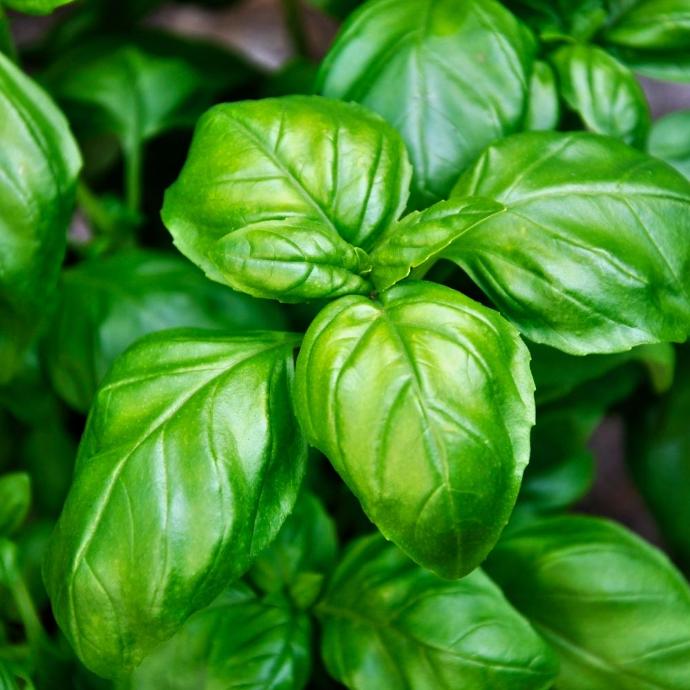
Basil
Basil is a popular herb that can be used fresh or dried in a variety of dishes. The cost of a sleeved basil herb at supermarkets is approximately $3.20 each. While the cost of growing your own herbs can vary, it is generally much cheaper than buying them from the supermarket, especially considering that a single plant can provide a continuous supply of herbs.
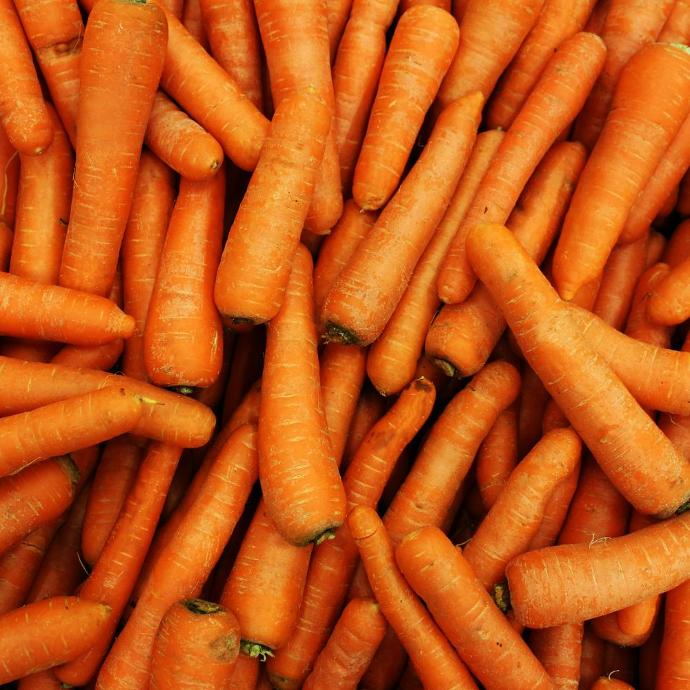
Carrots
Carrots are a staple in many households. They're relatively easy to grow and can be stored for a long period. The cost of carrots at supermarkets is approximately $1.30 per kg. The cost of growing your own carrots can vary, but carrot seeds can be bought relatively cheaply. A packet of seeds that could sow a 10m row of carrots might cost around $3. Each row can yield roughly 10kg of carrots. So, the cost of seeds per kilo of carrots is about $0.30. Thus with additional costs such as water the cost to grow carrots would still be far cheaper in comparison to purchasing at the supermarket.
Snow Peas and Green Beans
Snow peas and green beans are more recommended for more advanced growers due to the unique temperamental nature of these plants but is well worth it as they can be used in many dishes! Just make sure that you have something that they can grow up as they are climbing plants. The cost of snow peas at supermarkets is approximately $16 per kg. The cost of growing your own snow peas and green beans can vary, but it's generally cheaper than buying them from the supermarket, especially if you grow them in large quantities.
Now lets estimate the costings:
Seeds: The cost for 25 snow pea seeds is $2.29. A single snow pea plant is estimated to produce about 150g, or roughly 45 to 50 pods. Given that 1 kilogram (1000 grams) of snow peas would require around 7 plants, we need to account for about 14 seeds due to planting two seeds per cell for ensured growth. But factoring in potential losses to pests, it's recommended to sow 50% more seeds, bringing our total requirement to 21 seeds. The seed cost would therefore be (21/25) * $2.29 = $1.92.
Water: The water cost can vary based on local water rates and weather conditions. Using an average figure, we'll estimate the water cost at around $0.9-1.10 per kilo of yield as there would likely be 7 square meters worth of plants to produce this 1 kg of output. (calculated from estimated water cost at bottom of article)
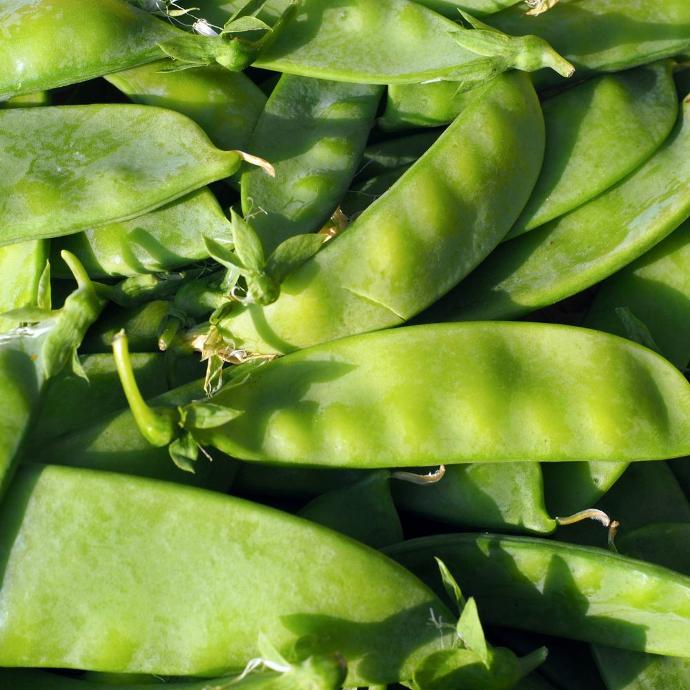
Adding these components, the total estimated cost to grow a kilo of snow peas is $1.92 (seeds) + $1.10 (water) = $3.02 compared to $16 per kg. This is an estimate and could be lower or higher depending on various factors like the germination rate, water requirements, pest infestations, and any additional fertilisers or soil amendments required.
That’s a huge saving!

Eggplant
Although eggplant takes longer to grow, it's a delicious vegetable to grow. It can be used for a variety of dishes including lots of Mediterranean recipes like baba ghanoush dip and moussaka. The cost of eggplant at supermarkets is approximately $7.90 per kg. The cost of growing your own eggplant can vary, but it's generally cheaper than buying them from the supermarket, especially if you grow them in large quantities. Growing eggplants in your own garden involves several components. The seeds, particularly if you're considering a premium or organic variety, cost roughly $2.50 per kilo of yield. Eggplants require a considerable amount of water, thus equating the equivalent of 8 square meters of water use with excessive use we could estimate a water cost of about $1.25-1.50 per kilo of yield (based on a standard estimate of $0.16 per 1sqm). Add these costs together, and the estimated cost to grow eggplants in your garden comes to around $3.50-4.00 per kilo, excluding other factors such as soil preparation, fertilisation or labour. Even with these costs, growing your own eggplants is still over $3.00 cheaper per kilo than purchasing from a supermarket, demonstrating the financial advantage of home gardening.
Important Consideration: It's key to note that while we aim to provide an accurate cost comparison, prices in supermarkets can and do fluctuate based on a variety of factors such as seasonality, supply and demand, and cost of production. Similarly, the cost of growing your own vegetables could potentially increase due to changes in seed prices and water rates which may vary from the current calculations. Some additional expenses such as composting, pest control and soil replacement have also not been considered in these calculations.
Tips to Maximise Vegetable Potential in Your Garden
Growing your own vegetables can be a rewarding experience, but it does require some planning and effort. Here are three tips to help you maximise the potential of your vegetable garden:
1. Choose the Right Location
The location of your vegetable garden can significantly impact the growth and yield of your plants. Most vegetables need at least six hours of sunlight each day, so choose a spot in your garden that gets plenty of sun. Also, make sure the area has good drainage to prevent waterlogging, which can harm your plants.
2. Use High-Quality Soil
The quality of your soil is crucial for the health and productivity of your vegetable garden. One of the best ways to ensure your plants get the nutrients they need is to use a high-quality soil mix, such as Daisy's Garden Supplies Vegie Mix. This mix is enriched with mushroom compost and other composts and manures, providing a rich, fertile soil that's perfect for a veggie garden. You can add it to your existing soil or create a whole new garden bed and plant straight into it.
3. Practice Crop Rotation
Crop rotation is a practice that can help prevent soil-borne diseases and pests, and improve soil fertility. This involves changing the type of plant grown in each area of your garden each season. For example, if you grew tomatoes in one part of your garden this year, you might grow beans there next year. This can help to break the life cycle of pests and diseases and reduce their impact on your garden.
Wrap-up:
Growing your own vegetables can be a cost-effective way to supplement your grocery shopping. Not only can it save you money in the long run, but it also offers a host of other benefits, from the satisfaction of eating food you've grown yourself to the simple joy of spending time outdoors. So, is it worth it to grow your own veggies? We certainly think so.
Source list:
- Vegetable cost sources:
- https://9now.nine.com.au/the-block/gardening-tips-lettuce-how-to-grow-in-container-balcony-backyard/fae34b26-f3f4-453d-8793-5e2ebf306661
- https://ecoseedbank.com/products/carrot-seeds-chantenay-red-core
- https://www.theseedcollection.com.au/vegetable/tomato
- https://www.happyvalleyseeds.com.au/collections/eggplant
- https://planyourpatch.com/how-many-snow-peas-does-a-plant-produce/?expand_article=1
- https://www.sarabackmo.com/harvest-snow-peas-often/
- Water Calculations Sources: (ESTIMATED WATER COST = $0.16 PER M^2 OF VEGETABLE GARDEN)
About the Authors

Harley Thompson
Harley is a second-generation journalist with a passion for gardening and a keen eye for detail. Currently studying a double degree of Commerce and International relations at Monash University, Harley loves learning new things. He specialises in creating engaging content about garden advice, using experience in store, with our team and customers. His writing blends his academic knowledge with practical experience, offering informative and inspiring articles.

Greg Fitzgerald
Greg Fitzgerald is a qualified horticulturalist with more than 30 years in the industry and 16 years at Daisy's Garden Supplies. He manages production and procurement for all our products, ensuring high-quality gardens and landscapes for our customers. His vast experience and qualification in horticulture make him a key asset to Daisy's. He offers valuable insights and a wealth of knowledge in terms of mulches, soils, pebbles and rocks, composts and many other products.